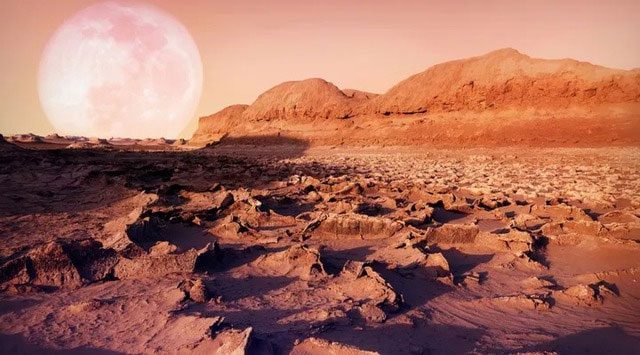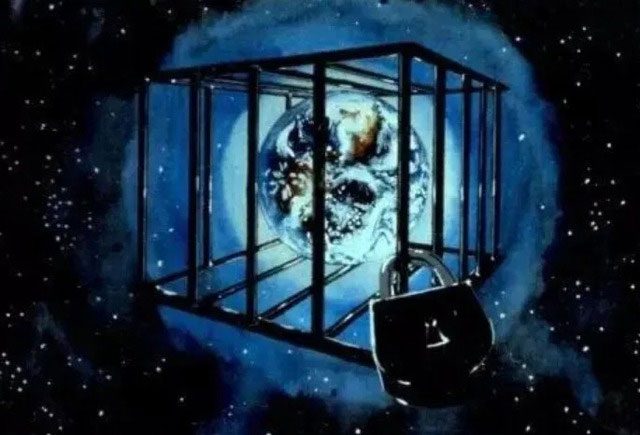The rarity of extraterrestrial civilizations may exceed human imagination. Some scientists estimate that only one large galaxy like the Milky Way could potentially harbor a civilization. This large galaxy is at least 2.54 million light-years away from us. If a civilization exists there, the likelihood of us encountering them is akin to two ants at opposite ends of the Earth.
At the end of the 19th century, Percival Lowell, an American businessman, author, mathematician, and astronomer, built an observatory to study Mars and published a book titled “Mars as the Abode for Life” in 1895. This book described Mars as a planet with life, suggesting that intelligent beings had created irrigation systems on its surface. His research on Mars sparked lively discussions about the possibility of life on the planet.
Although his theories were dismissed by scientists, human imagination regarding the existence of life on Mars remained undiminished. Ultimately, the Mariner 4 spacecraft flew by Mars in 1965 and ended all debates when its images revealed the planet to be a desolate world devoid of life.

About 4 billion years ago, Mars once had life.
However, as humanity’s understanding of Mars deepened, scientists discovered a shocking fact: About 4 billion years ago, Mars had a warm and humid climate, with rivers, lakes, and even oceans of liquid water on its surface. This indicates that Mars could potentially harbor life.
In recent years, discoveries from Mars rovers have revealed another possibility: ancient life on Mars may not be completely extinct. For example, NASA made a groundbreaking announcement in 2019: the Curiosity rover detected a significant amount of methane in Gale Crater on Mars, marking one of the most important discoveries in the history of Mars exploration.
While research is ongoing and no final conclusions have been reached, there are many signs indicating that Mars at least has the potential for life, and the likelihood is quite high. Consequently, we may have to confront a deeper question: If life exists on Mars, what does this mean for humanity? Most people might think this is good news, as humanity has been searching for extraterrestrial life, which is a desire shared by many. However, in reality, this may not be good news at all, and could even mark the beginning of despair.

A planet located in the habitable zone of its host star can potentially harbor life. (Illustrative image).
Based on phenomena observed by humanity so far, life exists only on Earth, suggesting that life is a very rare phenomenon. However, if life is discovered on Mars, this claim would be invalidated. This means that as long as a planet is located in the habitable zone of its host star, it can potentially generate life.
In the 1990s, Robin Hansen, an assistant professor at George Mason University in the United States, proposed a widely influential hypothesis: The Great Filter Theory, which suggests that Earth-like planets may provide only a few necessary conditions for the emergence of life. Whether life can arise or not is not the critical factor. To evolve into intelligent life, ultimately becoming an interstellar civilization, many obstacles must still be overcome. When faced with these obstacles, life may fail, go extinct, or stagnate, and these obstacles are referred to as the Great Filter.
He believes that the emergence and development of civilizations require at least nine key links:
- 1. A suitable planetary system must exist, at least in habitable locations with organic matter.
- 2. The evolution of self-replicating macromolecules, such as RNA.
- 3. The evolution of relatively simple prokaryotic life.
- 4. The evolution of relatively complex eukaryotic life.
- 5. The evolution of sexually reproducing life.
- 6. The evolution of multicellular life.
- 7. The evolution of larger brains in tool-using animals.
- 8. The evolution of human-like civilizations.
- 9. Development into an interstellar colonial civilization in the universe.
We can understand that each step in these nine key links represents a significant upgrade, and if any link is interrupted or faces obstacles, civilization cannot emerge or continue. These are just some of the most important key links, and each link can be broken down into smaller links, with every step being crucial.

Humans need to think more about their place in the universe. (Illustrative image).
Therefore, humanity needs to contemplate its place in the universe. Just like a primitive village, if it was initially situated within a sanctuary of primitive civilization, monitored by countless detectors and receiving absolute protection, completely isolated from external civilization, no matter how much it strives to develop, it would merely remain a village.
It is possible that when we look into the universe, the silence we perceive is precisely what others want us to see, and the discoveries we think are what they wish for us to know.

















































